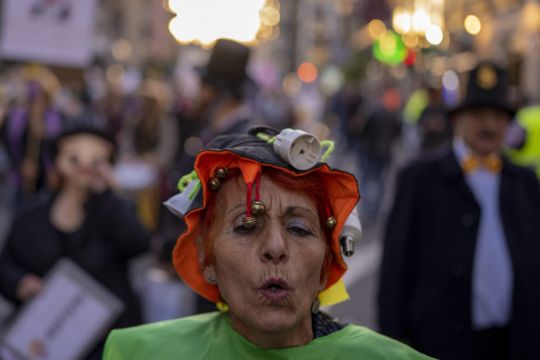Consumer prices across the 19 European Union countries that use the euro have risen to the highest level in more than 13 years, thanks to soaring energy prices and pent-up demand during the pandemic recovery.
Eurostat, the European Union’s statistics agency, said inflation across the bloc rose to 4.1% in the year to October, up from September’s equivalent rate of 3.4%.
The increase was the highest since July 2008, when inflation was also 4.1%.
Inflation in the 19 countries has been rising as the global economy rebounds from the coronavirus pandemic.
The recovery has not been normal, with businesses and consumers worldwide feeling the pinch of supply chain back-ups and labour shortages.
But the most dramatic effect on prices from lockdown restrictions easing and global demand picking up has been soaring energy costs, which have raised utility bills and threatened the economic recovery.
The latest rise in consumer prices is likely to put pressure on the European Central Bank to accelerate moves to end its pandemic stimulus measures, with inflation running at double its target of 2%.
Central banks usually raise interest rates and dial back stimulus efforts to combat rising prices, but they sometimes hold off if they think it’s linked to temporary factors.
The European Central Bank said on Thursday that much of the surge in prices is tied to comparisons with low prices during the pandemic, recently higher fuel costs and demand outpacing supply as the economy reopens.
As bank officials said they expected all three to be temporary, they kept their pandemic support, including a 1.85 trillion euro (£1.55 trillion) bond purchase programme, in place until March.
“We agree with the ECB that the forces pushing inflation up should fade next year,” said Jack Allen-Reynolds, senior Europe economist at Capital Economics.
“But given the uncertainty around how long supply problems will persist, the risks are clearly skewed towards a longer-lasting overshoot of 2%.”







